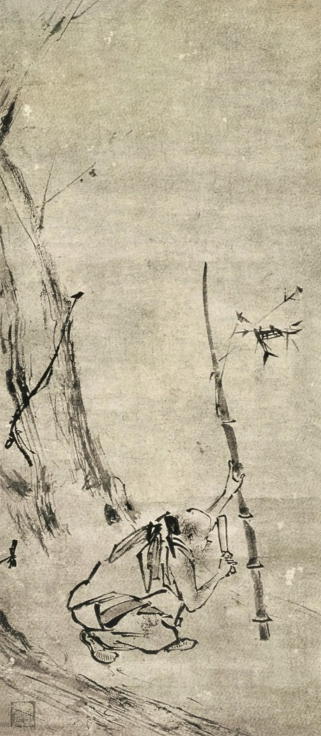

�� The Buddha-nature Needs Nothing ��
�` THE PLATFORM SUTRA OF THE SIXTH PATRIARCH �`

There are eternal truths in the Platform Sutra. The pmimacy of the Buddha-nature, the identity of meditation and wisdom, the "formless" approach to repentance and the precepts, the samadhi of the single practisu --- all these are religious principles that arevalid beyond the limits of this one brilliant scripture.
The most resounding truth, of course, is the doctrice that status, education, cultural or racial origin, and even spiritual traininghave nothing to do with the realization of perfect enlightenment. The only criterion of any significance whatsoever is theexperience of "seeing the Buddha-nature," realizing one's innate status as an enlightened being. This truth is embodied in theperson of Hui-neng.
The protagonist of this convivial scripture, Hui-neng of Ts'aoch'i, is a living manifestation of the Buddha-nature. As an illiterate"barbarian" from the far south, the impecunious son of a disgraced official, Hui-neng became the Sixth Patriarch of Chinese Ch'an Buddhism with none of the usual prerequisites of recognition as a religious master. He was not even a monk, but was treated --- and accepted his treatment --- as a declasse temple menial.
His only virtue was that he achieved an instantaneous and totalistic vision of the Buddha-nature, theunsullied brilliance of understanding immanent within us all.
"Achieved" is perhaps too strong a word, since there is no indication in the text that he worked for this moment of realization inany way. Hui-neng may have been diligent in cutting and selling firewood to support his widowed mather --- an expression offiliality beyond all others in Chinese culture --- and in hulling rice for the monastery at Huang-mei, but the Platform Sutra neverdepicts him spending a single moment in meditation or religious ritual, let alone intoning or studying the holy texts. As acharacter, Hui-neng is absolutely static, neither laboring mightily for insight nor ellusing with the newfound bliss of divinity;never was there a religious figure less transformed by his insight. In Hu Shih's famous phrase, this was truly a "Ch'an that was noch'an at all".
It is the "mind-verses" submitted by Hui-neng and his alter ego, Shen-hsiu, that are of course the very heart of the message.
The body is the bodhi tree;
The mind is like a bright mirror's stand.
Be always diligent in rubbing it ---
Do not let it attract any dust.
According to the story, the earnest and learned Shen-hsiu concocts an elegant blend of metaphors to express a religious ideal ofcomplate devotion to spiritual practice.
And Hui-neng's response ?
Bodhi is fundamentally without any tree:
The bright mirror is also not a stand.
Fundamentally there is not a single thing ---
Where could any dust be attracted ?
It is to blast apart the very terms in which Shen-hsi's message is phrased, to undercut the very foundation of religious practiceitself.
This is not where the message ends, of course. The balance of the text would seem to imply that this "Ch'an that was no ch'an atall" was indeed something that spiritual aspirants should strive to achieve. Indeed, the overall force of the text is paradoxicallyemphatic; although visualizing a goal to be grasped for and achieved is absolutely forbidden, meditation training is somethingthat must assuredly be undertaken, the highest imaginable goal of human existence. I will let the reader determine howsuccessfully the Platform Sutra articulates this permutation of the bodhisattva ideal.
Platform Sutra ----- �h�o
Samadhi ----- �O���i���_����̂��ƂɏW�����ė����Ȃ����Ɓj
Hui-neng ----- �d�\
Shen-hsiu ----- �_�G
Bodhisattva ----- ��F�i�����ҁj
Bodhi ----- ����i���E�o�E�q�j


